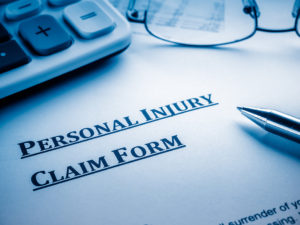Types of Personal Injury Lawsuits Against Employee Harassment
Posted April 9th, 2021 by Anthony Carbone, PC.
Categories: Personal Injury.

The workers’ compensation system in the United States is not just designed to protect employees from injury-related losses, but it also protects employers from employee lawsuits and several other types of personal injury lawsuits against employee harassment.
Most states follow “at-will” employment laws, which allow both the employer and employee to end their working relationship at any time, for just about any reason. Nonetheless, there are several exceptions to this rule that often form the basis for wrongful termination lawsuits.
If you believe you are being harassed by your employer in New Jersey, contact a Union City Personal Injury Attorney to learn more about your legal rights.
Commonly-Used Terminology
There are several commonly-used words in wrongful termination lawsuits and harassment claims involving personal injury, including:
- Harassment — Harassment is defined by federal law as unwelcome conduct based on an employee’s color, race, sex, pregnancy, religion, disability, age, or genetic information.
- Retaliation – Retaliation refers to firing, demoting, harassing, or committing a similar act toward an employee to punish them for filing an injury claim or lawsuit.
- Wrongful Termination – Wrongful termination refers to firing an employee in violation of the law.
Public Policy Violation
Public policy refers to a system of values and laws that guide society. Most employees who are harassed or terminated in violation of public policy face discrimination because they filed a compensation claim, engaged in whistleblowing, or refused to so something illegal for their employer.
The National Conference of State Legislators (NCSL) provides a chart for each state’s wrongful termination policies. If an employee can prove wrongful termination, they may be eligible for compensation from their employers to cover an array of damages, including:
- Lost wages
- Legal fees
- Mental anguish
- Punitive damages
Breach of Contract
A breach of a contract describes a situation where an employer acts in contrast to an established relationship with the employee. The relationship, either written or implied, usually creates a reasonable expectation of continued employment for the employee. If you have a written contract, you can prove that your employer fired you illegally, especially if it was after suffering a work injury.
Employer Retaliation
Both state and federal laws make it illegal for employers to retaliate against employees for whistleblowing or filing an injury or civil rights claim. Common retaliatory actions include:
- Demotion
- Unfair disciplinary actions
- Threatening actions or statements
- Termination
If you have been the victim or employer retaliation for filing an injury claim, turn to the Equal Opportunity Employment Commission for more information.
Discrimination Practices
In some companies, an employee may be discriminated against because of their injury or disability. This often follows a work injury for which the employee filed a claim or lawsuit. When this happens, the employee can sue their employer for discrimination under Title VII of the Civil Rights Act.
Talk to a Union City Personal Injury Attorney
While most states follow “at-will” employment laws, they are not exempt from wrongful termination suits. There are various types of personal injury lawsuits against employee harassment that a wrongfully-terminated employee can file for breach of contract or public policy violations.
Attorney Carbone is an experienced Union City Personal Injury Attorney who has been representing the rights of injured workers in New Jersey for over 30 years. If you believe your employer is violating your rights, contact the Law Offices of Anthony Carbone at 201-829-3829 to discuss your case.


